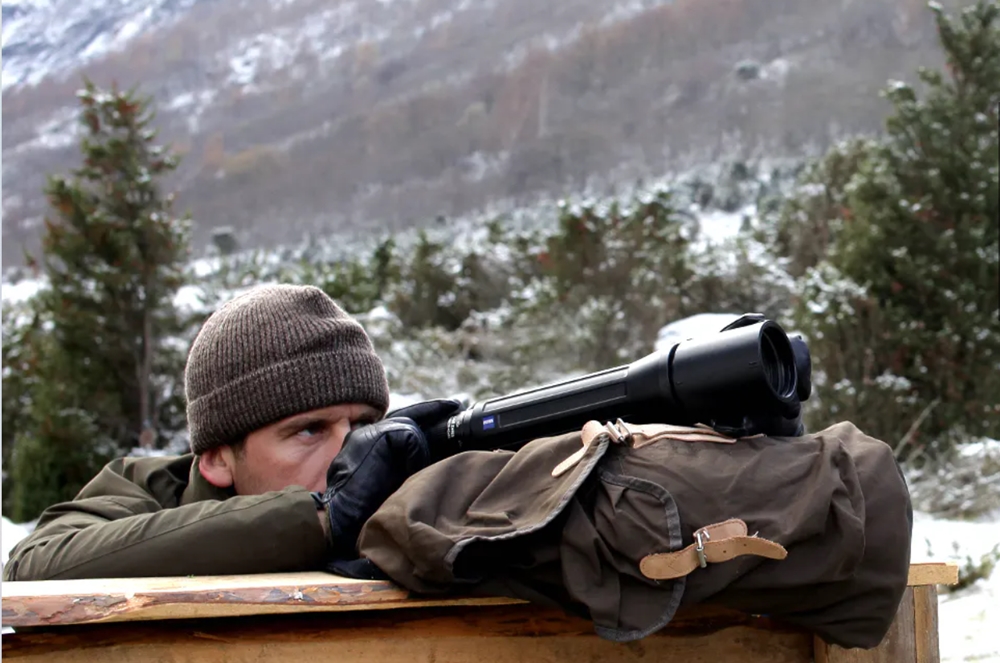Introduction
Want to spark up a discussion, or better yet, an argument? Simply say “spotting scopes are better than monoculars.” Choosing an optics device that works best for you is not as easy as it sounds, as it can feel downright overwhelming, especially if it comes down to deciding between a spotting scope and monoculars. https://www.youtube.com/embed/c9cnSROyBcw?version=3&rel=1&showsearch=0&showinfo=1&iv_load_policy=1&fs=1&hl=en-GB&autohide=2&wmode=transparent
There are various factors to take into account when deciding on the right one, and it often comes down to your personal preference for features, capabilities, fields of use, and price. If deciding on the best optics has given you nothing but a headache, we rounded up the most vital information to make the process a breeze.
Spotting Scopes
A spotting scope is defined as a small telescope with high power, intended for precise viewing of faraway objects. Spotting scopes are optical devices that can be carried around and used for multiple observing purposes, such as hunting and birdwatching, or perhaps tactical ranging – every observation where a higher magnification than that of binoculars is needed, usually from 20x to 60x. https://www.youtube.com/embed/0F6GLOR3n0k?version=3&rel=1&showsearch=0&showinfo=1&iv_load_policy=1&fs=1&hl=en-GB&autohide=2&wmode=transparent
The amount of light a spotting scope gathers and the resolution it offers is limited to the diameter of the objective lens, which usually ranges from 50 mm to 80 mm. And the larger the objective lens, the bulkier and pricier the spotting scope.
Monoculars
Monoculars are somewhat changed refracting telescopes, which are also intended to magnify the images of faraway objects. This is achieved when light passes through a range of lenses and prisms. A monocular is similar to a pair of binoculars but for one eye instead of two. Monoculars usually weigh less than half of a pair of binoculars, which makes them more portable and cheaper as well.
Spotting Scopes VS Monoculars
Hunting
When it comes to hunting, the monocular is most certainly at an advantage, as it is easier to carry around. When hunting, spotting your target is of most utter importance, and it can be of great help if you have a lightweight device, so your arms do not get tired as fast.
Source: Zeiss
However, monoculars are significantly lower powered than spotting scopes. The spotting scope provides the user with a long-ranging distance which means you can stalk your targets within hundreds of meters away. As mentioned, here, the only obstacle is weight, and some spotting scopes also need to be set up on a tripod. However, some spotting scopes can be used without a tripod and do not weigh as much.
Birdwatching
When it comes to observing birds, a spotting scope allows the user with remarkable accuracy of the birds’ feathered bodies and actions from a distance, almost as if you were standing right next to them – except they do not get frightened and fly away. This is a great choice if you plan on staying in one spot.
Source: Swarovski Optik
However, a spotting scope can prove to be slightly impractical if your plan is to move around. Here is when monoculars come to the rescue. While roaming around the city, it is more recommendable that you bring monoculars, as having them strapped around your neck is more efficient than carrying around s spotting scope and losing nerves, as well as time, trying to set it up quickly.
Astronomy
Monoculars do provide some observing of celestial objects, but so do your eyes. Monoculars are too low powered to be of any help when watching the night sky. A spotting scope, on the other hand, is often compared to a telescope, but they are still not the same. A spotting scope is smaller, more simple to use, and it provides the observer with an image that is not flipped upside down.
Of course, a telescope is a better choice when diving into the world of astronomy, but the second-best might be a spotting scope with a magnification up to 100x. Monoculars, on the other hand, offer a magnification of only around 10x.
Source and author: Maruša Justinek, www.optics-trade.eu




